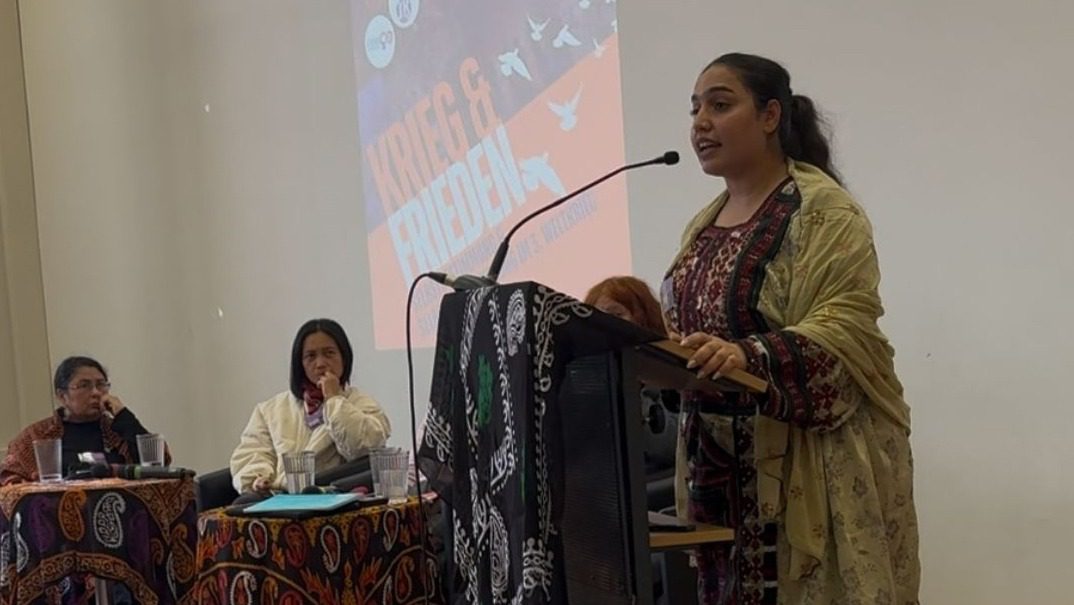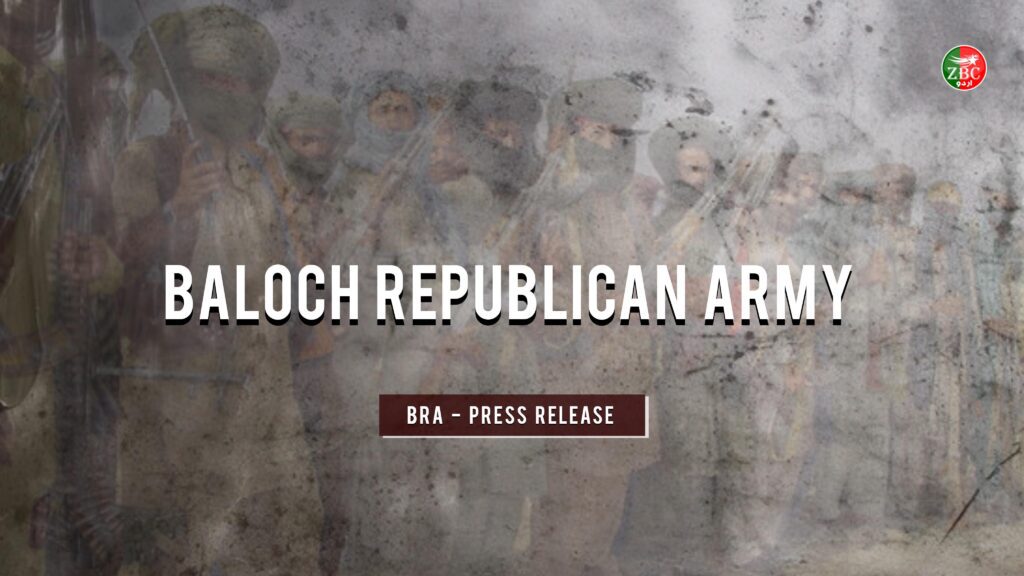⭒ Despite facing threats and harassment from authorities, Baloch women continue to lead the campaign for justice.
Berlin – Safia Manzoor, Vice President of the Baloch National Movement (BNM) in Germany, addressed the Women’s Conference for Peace, where she spoke about the pivotal role of Baloch women in the ongoing struggle for justice and human rights in Balochistan.
The conference, held in Berlin under the theme “War and Peace: Self-Determination and Self-Organization in the Third World War,” focused on women’s roles in conflict zones and their contributions to peace efforts.In her speech, Safia Manzoor detailed the challenges faced by the Baloch nation under Pakistani occupation, emphasizing the critical role of women in resisting oppression and advocating for the right to self-determination. She noted that, amid forced disappearances and military crackdowns in Balochistan, Baloch women are emerging as leaders in the fight for justice.
Despite facing threats and harassment from authorities, these women continue to demand justice for the forcibly missing and are leading this campaign with courage. Safia referenced Karima Baloch, a prominent figure in the Baloch Movement, stating that Shaheed Karima was the first woman to lead the Baloch Students Organization (BSO). Her leadership inspired many to raise their voices for Baloch rights and encouraged others to follow in her footsteps.
She also highlighted the contributions of Mahrang Baloch and Sammi Deen Baloch, two leading women activists who advocate for Baloch women’s rights and justice for the forcibly missing persons in Balochistan.
Safia underscored the immense challenges faced by Baloch women, including state-sponsored violence and the impacts of climate change, which have intensified their struggles. She called upon the international community to stand with Balochistan and raise awareness about the ongoing human rights violations in the region.
The Baloch National Movement (BNM) continues to advocate for the involvement of Baloch women in the struggle for national liberation and human rights, recognizing their indispensable role in resisting oppression.



